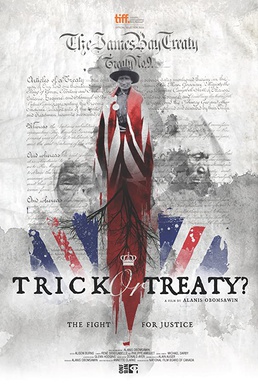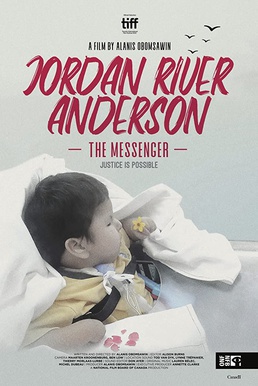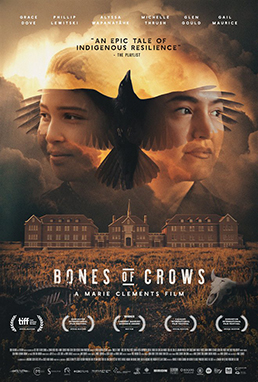Related Research Articles

Alanis Obomsawin, is an Abenaki American-Canadian filmmaker, singer, artist, and activist primarily known for her documentary films. Born in New Hampshire, United States and raised primarily in Quebec, Canada, she has written and directed many National Film Board of Canada documentaries on First Nations issues. Obomsawin is a member of Film Fatales independent women filmmakers.
Telescope is a Canadian documentary series which aired on CBC Television between 1963 and 1973. The series was hosted by Fletcher Markle, which profiled notable Canadian people from celebrities to the unknown, who made a difference.
Lucien Lessard was a politician in Quebec, Canada.
Kanehsatake: 270 Years of Resistance is a 1993 feature-length documentary film by Alanis Obomsawin, highlighting the events of the 1990 Oka Crisis. Obomsawin documents the events of The Siege of Kanehsatake over 78 days, capturing a rare perspective of an important turning point in Canadian history. Produced by the National Film Board of Canada, the film won 18 Canadian and international awards, including the Distinguished Documentary Achievement Award from the International Documentary Association and the CITY TV Award for Best Canadian Feature Film from the Toronto Festival of Festivals.
Incident at Restigouche is a 1984 documentary film by Alanis Obomsawin, chronicling a series of two raids on the Listuguj Mi'gmaq First Nation (Restigouche) by the Sûreté du Québec in 1981, as part of the efforts of the Quebec government to impose new restrictions on Native salmon fishermen.
The People of the Kattawapiskak River is a 2012 documentary film by Alanis Obomsawin exploring conditions inside the Attawapiskat First Nation, which in October 2011 declared a state of emergency due to health and safety concerns over a lack of housing and infrastructure, and remained in the public spotlight during the Idle No More protests.
Hi-Ho Mistahey! is a 2013 National Film Board of Canada feature documentary film by Alanis Obomsawin that profiles Shannen's Dream, an activist campaign first launched by Shannen Koostachin, a Cree teenager from Attawapiskat, to lobby for improved educational opportunities for First Nations youth.

Trick or Treaty? is a 2014 Canadian documentary feature film by Alanis Obomsawin about Treaty 9, a 1905 agreement in which First Nations peoples in northern Ontario surrendered their sovereign rights. The film is the first by an indigenous filmmaker to be selected to the Masters program at the Toronto International Film Festival, and is the 43rd film by Obomsawin for the National Film Board of Canada.
Richard Cardinal: Cry from a Diary of a Métis Child is a 1986 National Film Board of Canada documentary film by Alanis Obomsawin, about the suicide of Métis youth Richard Stanley Cardinal, who killed himself in 1984 at the age of 17. Cardinal, who had been placed in 28 different homes during his 14 years in Alberta's child welfare system, hanged himself from a cross bar he had nailed between two trees near his last foster home, northwest of Edmonton.
Robert Verrall is a Canadian animator, director and film producer who worked for the National Film Board of Canada (NFB) from 1945 to 1987. Over the course of his career, his films garnered a BAFTA Award, prizes at the Cannes Film Festival and Venice Film Festival, and six Academy Award nominations.
We Can't Make the Same Mistake Twice is a 2016 Canadian documentary film by Alanis Obomsawin about the First Nations activist Cindy Blackstock and her court case against the federal government of Canada for underfunding social services to children living on First Nations reserves.
Amanda Strong is a stop-motion animation filmmaker who resides in Vancouver, Canada. She has exhibited work and her films have been screened at festivals worldwide, including Cannes Film Festival, Toronto International Film Festival, Vancouver International Film Festival, and the Ottawa International Animation Festival. Strong is Red River Métis and a member of the Manitoba Métis Federation.
Our People Will Be Healed is a 2017 Canadian documentary film by Alanis Obomsawin. The film premiered at the 2017 Toronto International Film Festival. The film explores the Helen Betty Osborne Ininiw Education Resource Centre, an N-12 Frontier School Division school in Norway House, Manitoba where Cree students are taught about their own history and culture alongside the regular Manitoba school curriculum.

Jordan River Anderson, the Messenger is a 2019 Canadian documentary film directed by Alanis Obomsawin. The film profiles Jordan River Anderson, a young boy from the Norway House Cree Nation in Manitoba whose permanent lifelong hospitalization with a rare genetic disorder caused a political fight between the provincial and federal governments over the cost of his medical care, resulting in the establishment of the new Jordan's Principle around equity of access to health and social services for First Nations children.
Now Is the Time is a Canadian documentary film, directed by Christopher Auchter and released in 2019. Created to mark the 50th anniversary of Haida artist Robert Davidson carving and erecting a totem pole on Haida Gwaii in 1969 for the first time in nearly a century, the film blends historical footage from Eugene Boyko's 1970 documentary film This Was the Time with contemporary footage, including the now elderly Davidson's own reflections on the historic importance of his project. The film was made as part of a National Film Board of Canada project, encouraging indigenous filmmakers to make new works responding to and recontextualizing the sometimes colonialist outsider perspectives reflected in many of the organization's old documentaries on First Nations and Inuit cultures.

The 2021 Toronto International Film Festival, the 46th event in the Toronto International Film Festival series, was held from September 9 to 18, 2021. Due to the continued COVID-19 pandemic in Toronto, the festival was staged as a "hybrid" of in-person and digital screenings. Most films were screened both in-person and on the digital platform, although a few titles were withheld by their distributors from the digital platform and instead were screened exclusively in-person.
Honour to Senator Murray Sinclair is a Canadian short documentary film, directed by Alanis Obomsawin and released in 2021. The film intercuts excerpts of former Canadian senator Murray Sinclair's 2016 acceptance speech, when he was presented with an award by the World Federalist Movement-Canada in honour of his role as chair of the Truth and Reconciliation Commission of Canada, with the personal testimonies of various survivors of the Canadian Indian residential school system.

Bones of Crows is a 2022 Canadian drama film, written, produced, and directed by Marie Clements. The film stars Grace Dove as Aline Spears, a Cree woman who survives the Indian residential school system to become a code talker for the Canadian Air Force during World War II.

Mali Obomsawin is an Indigenous musician from Abenaki First Nation at Odanak. An award-winning bassist, vocalist, songwriter, and composer, Obomsawin is a cross-genre artist specializing in free-jazz, rock, and American roots music. Her debut solo album “Sweet Tooth” (2022) received international acclaim.
When All the Leaves Are Gone is a Canadian short drama film, directed by Alanis Obomsawin and released in 2010. One of just two narrative fiction films, alongside Sigwan, that Obomsawin made in a career otherwise devoted entirely to documentary films, the film dramatizes Obomsawin's childhood experiences through the story of Wato, a young girl experiencing anti-indigenous prejudice as the only First Nations student in an otherwise all-white school in the 1940s, who finds comfort and strength in the magical world of her dreams.
References
- ↑ "Films and gala herald start of film festival". Whitehorse Star , June 21, 2006.
- ↑ Pat Mullen, "TIFF Unveils Line-up for ‘Celebrating Alanis’ Retrospective". Point of View , August 11, 2021.